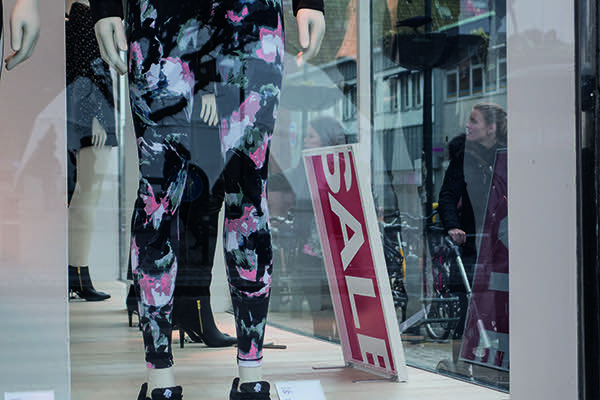The fashion industry has gone through immense changes in the past century, making clothing accessible to the masses. The downside is the lack of sustainability in current production. With climate change looming, the industry and consumer will be forced into reconsidering this system.
Fast fashion, like fast food, is both immediate and fulfilling. It does the job but is it healthy? Fast fashion drives the mass production of clothing with the intention of quickly releasing new lines of clothing for customers to purchase.
Though fashion production has experienced a massive change since industrialization, the cultural significance of fashion cannot be ignored as its contribution to society is vast. The fashion industry’s future decisions will impact the globe and therefore needs careful consideration but also immediate action.
Tullia Jack, a Doctoral student at Lund University, is involved in teaching a handful of courses including one in sustainable fashion and managing sustainability.
“What started as a democratization project, making clothing accessible for everyone, has now gone too far. Apparel has become so cheap that not only can everyone afford the basics, but we buy mountains of unnecessary fashion,” she says.
According to a 2016 report by Greenpeace, the amount of clothing produced from 2000 to 2014 has doubled, the life cycle of clothing was cut in half during from 1992 and 2002. In just the 21st century alone we have managed to keep clothing for half as long while purchasing sixty percent more than before. These statistics are referring to countries in the global North, but should not discount the rest of the world as they, too, are impacted.
Tullia Jack gives her insight to the issues behind outsourcing clothing production:
“A major problem is that companies externalize the costs. We are not paying for the pollution cost or the land. We do not pay for the recycling of the clothing, the sick or parental leave for the workers. If these costs were included, then clothing would not be the price it is today.”
Consumption of fast fashion clothing has global consequences. Toxic chemicals used to make synthetic fibers such as polyester runoff into local water bodies, and Greenpeace reported in 2016 that these chemicals continue to wash out over the course of a products’ lifetime. This means that washing and caring for these clothes is inherently polluting. Unfortunately, natural fibers such as cotton are not always better as cultivation requires large amounts of water and land.
Sustainable and ecological brands do exist of course, however, Tullia Jack mentions that sustainable brands that enter the market often increase the volume of production rather than change the existing fast fashion brands.
“There is so much energy used in sorting and recycling clothes. Currently it is too expensive to be viable, taking apart clothing for recycling produces pollution, lots of resources and chemicals are used as well. The system is not in place yet. There is so much potential in closed loop, cradle to cradle, and circular economy systems that could work. I’m excited to see what the future brings.”
As the lifetime of our clothes comes to an end, their disposal is just as troublesome. The same report by Greenpeace in 2016 notes that most of our clothing ends up in a landfill or burned, releasing the toxic chemicals into the atmosphere. Recycling would seem like the obvious solution; however, this process is not always applicable with fast fashion products made from an array of fibers that must first be separated before recycling can happen. As of yet, no such machine exists.
”We could have swap and repair stations,” says Tullia Jack.
She gives Nudie Jeans as an example, along with Retuna, Kontrapunkt, Swap Shop, and the klädbyte (clothing exchange) pop up. These various initiatives either repair, donate, or swap clothing and most are local. They can also provide a great fast fashion neurological kick, with added benefits of individuality and personal contact.
Second to oil, the fashion and textile industry is the most polluting industry in the world, says Business of Fashion in a 2015 article. As ongoing climate change continues to impact the daily lives of many and the future of even more, the considerations of the fast fashion industry become more pressing. But who is to blame? Are these fast fashion companies like H&M and Zara to be held accountable? Tullia Jack blames the capitalist system; these businesses only follow market demand. They follow the logic of money, and are not necessarily accountable to nature. To make the fashion system sustainable, Tullia Jack thinks government needs much more robust policy for the entire fashion supply chain.










